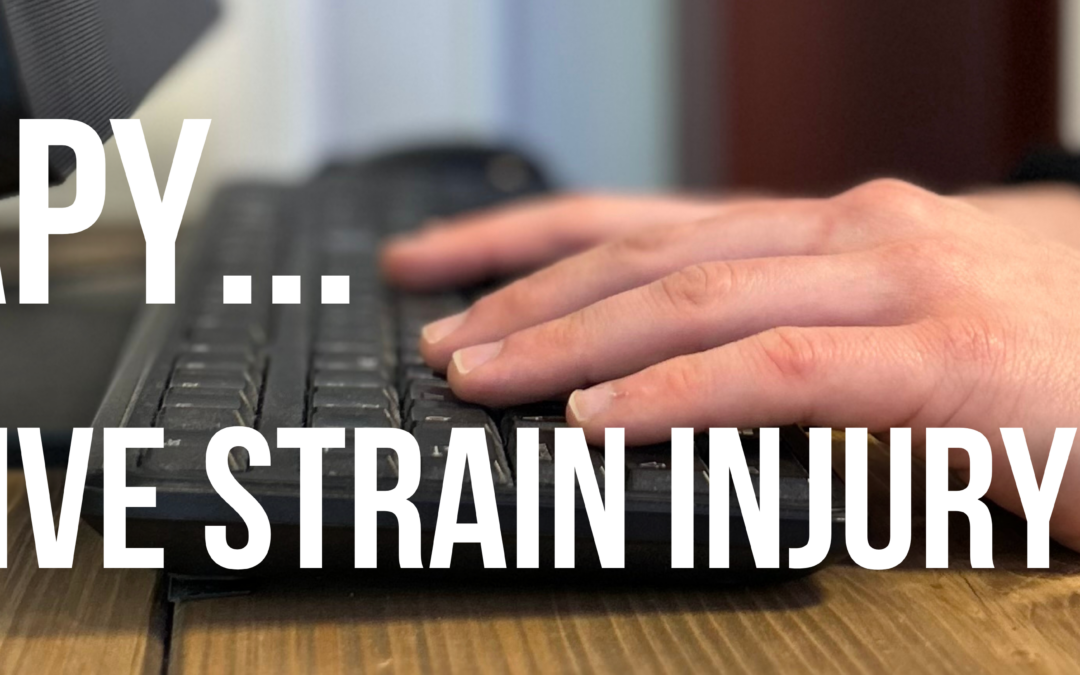What is it?
Repetitive strain injury is damage to your muscles, tendons and nerves caused by repetitive motion and constant use. Any motion, even typing can cause repetitive strain injury if you do it too often.
Common areas of the body repetitive strain injury can occur are:
- Fingers and thumbs
- Wrists
- Elbows
- Arms
- Shoulders
- Knees
People with physically demanding jobs or jobs that require repetition of the same movement are at higher risk of repetitive strain injury. This can include, but is not limited to food pickers, supermarket checkout jobs, warehouse workers, programmers, lorry drivers, decorators, and labourers.

What is the effect on the body?
Common symptoms of repetitive strain injury include stiffness, weakness, numbness, cramp, tenderness and sometimes a “tingling” sensation. Because this condition gets worse with time, the above symptoms can be exacerbated causing more serious issues like:
- Stress fractures
- Ganglion cysts
- Nerve compression syndromes
- Herniated disks
- Bursitis
- Dupuytren’s contracture
Unfortunately, repetitive strain injury can cause a person to cease work because of its disabling effects. It is VITAL a person understands their risk of repetitive strain injury in their profession, and they do their best to prevent it.
Management and treatment
The best treatment for repetitive strain injury is to modify or reduce the activity that you think is causing the issue and give time for the effected body part to rest and “heal”. As stated above, sometimes this can be hard when your profession requires you to do these motions/activities.
Wearing all the appropriate protective equipment e.g., when operating vibrating equipment, not “pushing through the pain,” and warming up/cooling down/stretching are all good practices for prevention.
A physical therapist should be able to identify movements causing the repeated strain and the specific muscles/tendons/nerves affected. Then, they can tailor posture, strength, and flexibility work to help with your recovery.
In extreme conditions, when permanent damage has been done, surgery may be needed.
Speak to one of the tfd therapy team for help with managing your symptoms and to help with your recovery.

